
Keeping clients' computers safe and profitable for over 30 years
Home Forms About Current Newsletter subscribe
Search All Articles
Browse by Category

PC Form Factors
Preview:
Often people who are looking for a new computer only think of two kinds, a tower or a laptop. However, there are other options you should consider. Here is a short description of 5 PC form factors.
Here are five form factors, four of which you should consider for your new computer. Don't limit yourself to either a laptop or desktop. Too many people only think about tower computers and laptops. Often NUCs or Mini computers are more appropriate.
The Standard Tower
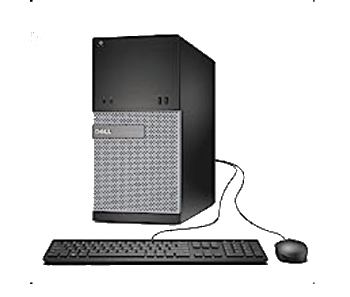
These computers usually sit on the floor under your desk and have many advantages.
- The use standard parts so are quick and easy to repair.
- They are reliable.
- They are faster than similar computers in other form factors.
- They have the best airflow so they run cooler than other form factors.
Clearly, I don't mean every tower. You could buy a crappy cheap tower that is junk. But, all other factors being equal, these will be the most reliable and run the coolest. If something does go wrong, they are the easiest to work on and repair locally. They are the hardest to ship back to the manufacturer.
These are what I normally recommend for all my business clients.
The Mini Tower
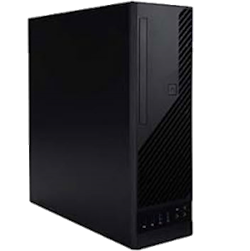
These are just standard towers where they cut corners. You can get more small tower cases in a shipping container, so the cases cost less. They use smaller and cheaper power supplies as well. It is harder to get the airflow comparable to a standard tower. They often cut other corners as well. Other than price, this is seldom a good choice.
The Laptop
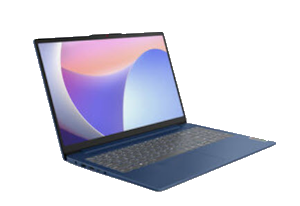
On the positive side, if you require a full Windows machine in multiple locations, then this is about your only option. You have some factors to consider. The smaller the screen, but the easier it is for carrying on an airplane, but the screen's smaller. There are always compromises between the size of screen and weight and power and battery life, ports and cost.
The NUC
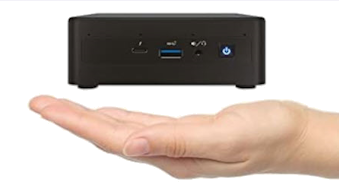
NUC stands for Next Unit Computing and are more reliable than laptops because they aren't moved around. They are so small, they fit under your monitor. You'll use your own monitor(s) and keyboard. They have about the same speed and heat considerations as laptops. However they normally have more USB and Video ports because they aren't competing for skinny prizes. They are a good option for people with limited space who don't want to put a tower under their desk. These can be good for home users who don't need powerful computers and don't have much space. But they are harder to transport than a laptop and don't have their own screens and keyboards attached.
The Mini Business Desktop PC
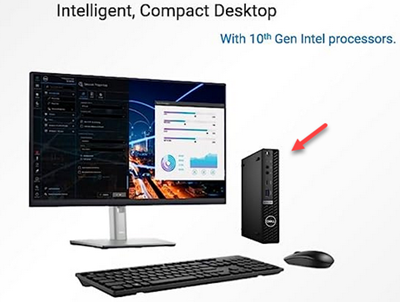
These are fairly new. Essentially, they are about twice as big as NUCs and as a result, have better cooling, can run faster, and can support more ports for better connectivity. Because they run cooler, they can run faster, so provide more power than Laptops and NUCs. They are about the size of a modem or router (without the antennas), and are placed on the desktop next to a monitor and take up almost no space standing vertically. They are becoming more and more popular in corporate environments and home offices. These are an excellent option for those in small spaces. They don't have DVD drives.
These are sometimes called Micro Form Factor despite being about twice as big as NUCs. Those I've seen are about 7" x 7" x 1.5", but they'll no doubt have many size options.
What I've skipped
Some of you might be wondering why I've skipped the "All in one" computers. Because they are idiotic. Essentially they are NUC computers stuck inside or on the back of the monitor where they have a harder time dispersing their heat and get heated not only from their CPU but also from the monitor. I have to draw the line somewhere.I also don't think the laptops that let you fold the screen all the way around and pretend it is a tablet to be a different form factor. They are laptops with a feature, like a touchscreen which some people might find useful.
Conclusion
Carefully consider the form factor alternatives before buying your next PC. Even wonder whether you actually need a PC for traveling. For portable computing I use an Android tablet and do much of my writing with my thumbs. Other people really like using an IPad when they travel. For cramped spaces, the Micro Form factor NUCs and Mini Business Computers are good choices if you aren't traveling with it.Date: August 2023

This article is licensed under a Creative Commons Attribution-NoDerivs 3.0 Unported License.